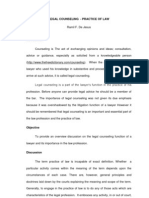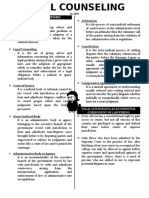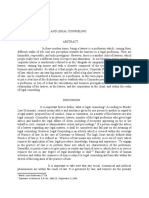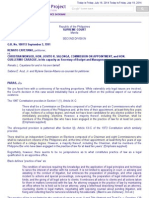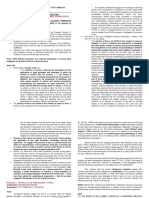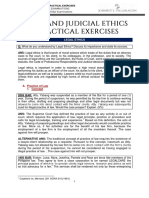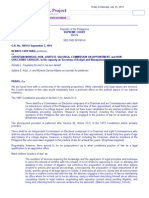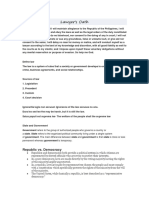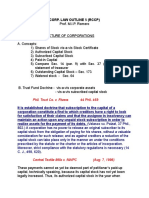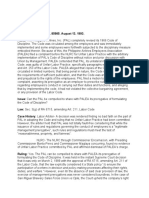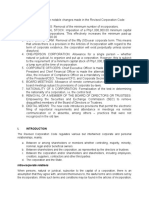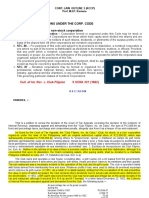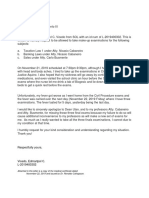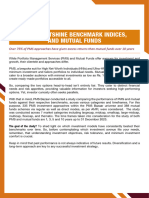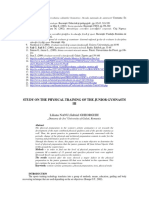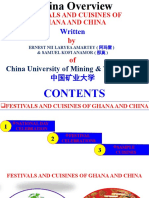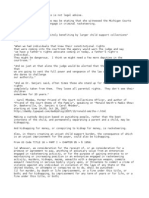VICEDO, Edmartpol C.
LegCoun 3C
2019400302 Dean Ulpiano Sarmiento III
Concepts and jurisprudence in Legal Counselling:
I. What is legal counselling?
According to Blacks' Law Dictionary, counsel means advice and
assistance given by one person to another in regard to a legal matter,
proposed line of conduct, claim or contention. As a matter of fact
lawyers are also legal counsels. Counsellor is an attorney; lawyer; member
of the legal profession who gives legal advice and handles the legal affairs
of client, including if necessary appearing on his or her behalf in civil,
criminal or administrative action and proceedings.
II. Who can engage in legal counselling?
Lawyers can engage in legal counselling.
Section 1 of Rule 138, ROC provides on who may practice law in the
Philippines. This provision declares:
Who may practice law. — Any person heretofore duly admitted as a
member of the bar, or hereafter admitted as such in accordance with
the provisions of this rule, and who is in good and regular standing, is
entitled to practice law.
Practice of law
�As held in the case of Cayetano vs. Monsod, “practice of law means any
activity, in or out of court, which requires the application of law, legal
procedure, knowledge, training and experience. To engage in the
practice of law is to perform those acts which are characteristics of the
profession. Generally, to practice law is to give notice or render any kind of
service, which device or service requires the use in any degree of legal
knowledge or skill.”
Black defines "practice of law" as:
"The rendition of services requiring the knowledge and the application of
legal principles and technique to serve the interest of another with his
consent. It is not limited to appearing in court, or advising and assisting in
the conduct of litigation, but embraces the preparation of pleadings, and
other papers incident to actions and special proceedings, conveyancing,
the preparation of legal instruments of all kinds, and the giving of all legal
advice to clients. It embraces all advice to clients and all actions taken
for them in matters connected with the law. An attorney engages in the
practice of law by maintaining an office where he is held out to be an
attorney, using a letterhead describing himself as an attorney, counseling
clients in legal matters, negotiating with opposing counsel about pending
litigation, and fixing and collecting fees for services rendered by his
associate."
III. Non-lawyers?
No. Non- lawyers cannot engage in legal counselling. It is well settled
in our laws and jurisprudence that only lawyers are allowed to
conduct practice of law, which one aspect of it is legal counselling.
However, in the case of Ulep vs. Legal Clinic, the Court thoroughly
discussed the giving out of legal advice or information not being a practice
of law, and which is allowed.
But suppose the architect, asked by his client to omit a fire tower, replies
that it is required by the statute. Or the industrial relations expert cites, in
�support of some measure that he recommends, a decision of the National
Labor Relations Board. Are they practicing law? In my opinion, they are
not, provided no separate fee is charged for the legal advice or
information, and the legal question is subordinate and incidental to a
major non-legal problem.
xxx
In determining whether a man is practicing law, we should consider his
work for any particular client or customer, as a whole. I can imagine
defendant being engaged primarily to advise as to the law defining his
client's obligations to his employees, to guide his client's obligations to his
employees, to guide his client along the path charted by law. This, of
course, would be the practice of the law. But such is not the fact in the case
before me. Defendant's primarily efforts are along economic and
psychological lines. The law only provides the frame within which he must
work, just as the zoning code limits the kind of building the limits the kind of
building the architect may plan. The incidental legal advice or
information defendant may give, does not transform his activities into
the practice of law. Let me add that if, even as a minor feature of his work,
he performed services which are customarily reserved to members of the
bar, he would be practicing law. For instance, if as part of a welfare
program, he drew employees' wills.
xxx
1.8 From the foregoing, it can be said that a person engaged in a lawful
calling (which may involve knowledge of the law) is not engaged in the
practice of law provided that:
(a) The legal question is subordinate and incidental to a major non-legal
problem;.
(b) The services performed are not customarily reserved to members of the
bar; .
(c) No separate fee is charged for the legal advice or information.
All these must be considered in relation to the work for any particular client
as a whole.
�In this case, giving out of legal advice or information by a non-lawyer may
be allowed as this would not constitute a practice of law if no separate fee
is charged for the legal advice or information.
IV. Is counselling considered practice of law?
Yes. Legal counselling is considered a practice of law.
In the case of Ulep vs. Legal Clinic, the Court likewise ruled that the
“practice of law means any activity, in or out of court, which requires the
application of law, legal procedures, knowledge, training and experience.
To engage in the practice of law is to perform those acts which are
characteristic of the profession. Generally, to practice law is to give advice
or render any kind of service that involves legal knowledge or skill.
The practice of law is not limited to the conduct of cases in court. It
includes legal advice and counsel, and the preparation of legal
instruments and contract by which legal rights are secured, although such
matter may or may not be pending in a court.”
Legal Counselling and ethics:
I. Does legal counselling have an ethical dimension?
Yes. Legal counselling has an ethical dimension.
In the case of In re: Argosino, it was held that the practice of law is a
privilege granted only to those who possess the strict intellectual and moral
qualifications required of lawyers who are instruments in the effective and
efficient administration of justice.
�Also, Code of Professional Responsibility embodies provisions relating to
legal counselling.
Canon 2, Rule 2.02 - In such cases, even if the lawyer does not accept a
case, he shall not refuse to render legal advice to the person concerned if
only to the extent necessary to safeguard the latter’s rights.
Canon 8, Rule 8.02 - A lawyer shall not, directly or indirectly, encroach
upon the professional employment of another lawyer; however, it is the
right of any lawyer, without fear or favor, to give proper advice and
assistance to those seeking relief against unfaithful or neglectful counsel.


